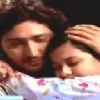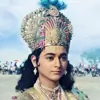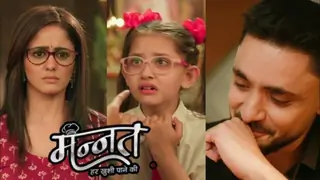Karna did repetnt, the citation provided by Ritika (riti4u) confirms it.
"Hearing these words, a loud uproar rose from among those present in that assembly. And they all applauded Vikarna and censured the son of Suvala. And at that sound, the son of Radha, deprived of his senses by anger, waving his well-shaped arms, said these words,--'O Vikarna, many opposite and inconsistent conditions are noticeable in this assembly. Like fire produced from a faggot, consuming the faggot itself, this thy ire will consume thee. These personages here, though urged by Krishna, have not uttered a word. They all regard the daughter of Drupada to have been properly won. Thou alone, O son of Dhritarashtra in consequence of thy immature years, art bursting with wrath, for though but a boy thou speakest in the assembly as if thou wert old. O younger brother of Duryodhana, thou dost not know what morality truly is, for thou sayest like a fool that this Krishna who hath been (justly) won as not won at all. O son of Dhritarashtra, how dost thou regard Krishna as not won, when the eldest of the Pandavas before this assembly staked all his possessions? O bull of the Bharata race, Draupadi is included in all the possessions (of Yudhishthira). Therefore, why regardest thou Krishna who hath been justly won as not won? Draupadi had been mentioned (by Suvala) and approved of as a stake by the Pandavas. For what reason then dost thou yet regard her as not won? Or, if thou thinkest that bringing her hither attired in a single piece of cloth, is an action of impropriety, listen to certain excellent reasons I will give. O son of the Kuru race, the gods have ordained only one husband for one woman. This Draupadi, however, hath many husbands. Therefore, certain it is that she is an unchaste woman. To bring her, therefore, into this assembly attired though she be in one piece of cloth--even to uncover her is not at all an act that may cause surprise. Whatever wealth the Pandavas had--she herself and these Pandavas themselves,--have all been justly won by the son of Suvala. O Dussasana, this Vikarna speaking words of (apparent) wisdom is but a boy. Take off the robes of the Pandavas
p. 132
as also the attire of Draupadi. Hearing these words the Pandavas, O Bharata, took of their upper garments and throwing them down sat in that assembly. Then Dussasana, O king, forcibly seizing Draupadi's attire before the eyes of all, began to drag it off her person."
"Karna said,--'Of all the persons in the assembly, three, viz., Bhishma, Vidura, and the preceptor of the Kurus (Drona) appear to be independent; for they always speak of their master as wicked, always censure him, and never wish for his prosperity. O excellent one, the slave, the son, and the wife are always dependent. They cannot earn wealth, for whatever they earn belongeth to their master. Thou art the wife of a
p. 138
slave incapable of possessing anything on his own account. Repair now to the inner apartments of king Dhritarashtra and serve the king's relatives. We direct that that is now thy proper business. And, O princess, all the sons of Dhritarashtra and not the sons of Pritha are now thy masters. O handsome one, select thou another husband now,--one who will not make thee a slave by gambling. It is well-known that women, especially that are slaves, are not censurable if they proceed with freedom in electing husbands. Therefore let it be done by thee. Nakula hath been won, as also Bhimasena, and Yudhishthira also, and Sahadeva, and Arjuna. And, O Yajnaseni, thou art now a slave. Thy husbands that are slaves cannot continue to be thy lords any longer. Alas, doth not the son of Pritha regards life, prowess and manhood as of no use that he offereth this daughter of Drupada, the king of Panchala, in the presence of all this assembly, as a stake at dice?'"
Krishna lists off all Karna's ill deeds: https://www.sacred-texts.com/hin/m08/m08091.htm
"Sanjaya said, 'Then Vasudeva, stationed on the car, addressed Karna, saying, "By good luck it is, O son of Radha, that thou rememberest virtue! It is generally seen that they that are mean, when they sink into distress, rail at Providence but never at their own misdeeds. Thyself and Suyodhana and Duhshasana and Shakuni, the son of Subala, had caused Draupadi, clad in a single piece of raiment, to be brought into the midst of the assembly. On that occasion, O Karna, this virtue of thine did not manifest itself. When at the assembly Shakuni, an adept in dice, vanquished Kunti's son Yudhishthira who was unacquainted with it, whither had this virtue of thine gone? When the Kuru king (Duryodhana), acting under thy counsels, treated Bhimasena in that way with the aid of snakes and poisoned food, whither had this virtue of thine then gone? When the period of exile into the woods was over as also the thirteenth year, thou didst not make over to the Pandavas their kingdom. Whither had this virtue of thine then gone? Thou didst set fire to the house of lac at Varanavata for burning to death the sleeping Pandavas. Whither then, O son of Radha, had this virtue of thine gone? Thou laughedest at Krishna while she stood in the midst of the assembly, scantily dressed because in her season and obedient to Duhshasana's will, whither, then, O Karna, had this virtue of thine gone? When from the apartment reserved for the females innocent Krishna was dragged, thou didst not interfere. Whither, O son of Radha, had this virtue of thine gone? Thyself addressing the princess Draupadi, that lady whose tread is as dignified as that of the elephant, in these words, viz., 'The Pandavas, O Krishna, are lost. They have sunk into eternal hell. Do thou choose another husband!' thou lookedest on the scene with delight. Whither then, O Karna, had this virtue of thine gone? Covetous of kingdom and relying on the ruler of the Gandharvas, thou summonedest the Pandavas (to a match of dice). Whither then had this virtue of thine gone? When many mighty car-warriors, encompassing the boy Abhimanyu in battle, slew him, whither had this virtue of thine then gone? If this virtue that thou now invokest was nowhere on those occasions, what is the use then of parching thy palate now, by uttering that word? Thou art now for the practice of virtue, O Suta, but thou shalt not escape with life. Like Nala who was defeated by Pushkara with the aid of dice but who regained his kingdom by prowess, the Pandavas, who are free from cupidity, will recover their kingdom by the prowess of their arms, aided with all their friends. Having slain in battle their powerful foes, they, with the Somakas, will recover their kingdom. The Dhartarashtras will meet with destruction at the hands of those lions among men (viz., the sons of Pandu), that are always protected by virtue!'"
"Sanjaya continued, 'Thus addressed, O Bharata, by Vasudeva, Karna hung down his head in shame and gave no answer. With lips quivering in rage, he raised his bow, O Bharata, and, being endued with great energy and prowess, he continued to fight with Partha. Then Vasudeva, addressing Phalguna, that bull among men, said, "O thou of great might, piercing Karna with a celestial weapon, throw him down." Thus addressed by the holy one, Arjuna became filled with rage. Indeed, remembering the incidents alluded to by Krishna, Dhananjaya blazed up with fury. Then, O king, blazing flames of fire seemed to emanate from all the pores of the angry Partha's body. The sight seemed to be exceedingly wonderful. Beholding it, Karna, invoking the brahmastra, showered his shafts upon Dhananjaya, and once more made an effort to extricate his car. Partha also, by the aid of the brahmastra, poured arrowy downpours upon Karna. Baffling with his own weapon the weapon of his foe, the son of Pandu continued to strike him. The son of Kunti then, aiming at Karna sped another favourite weapon of his that was inspired with the energy of Agni. Sped by Arjuna, that weapon blazed up with its own energy.


























